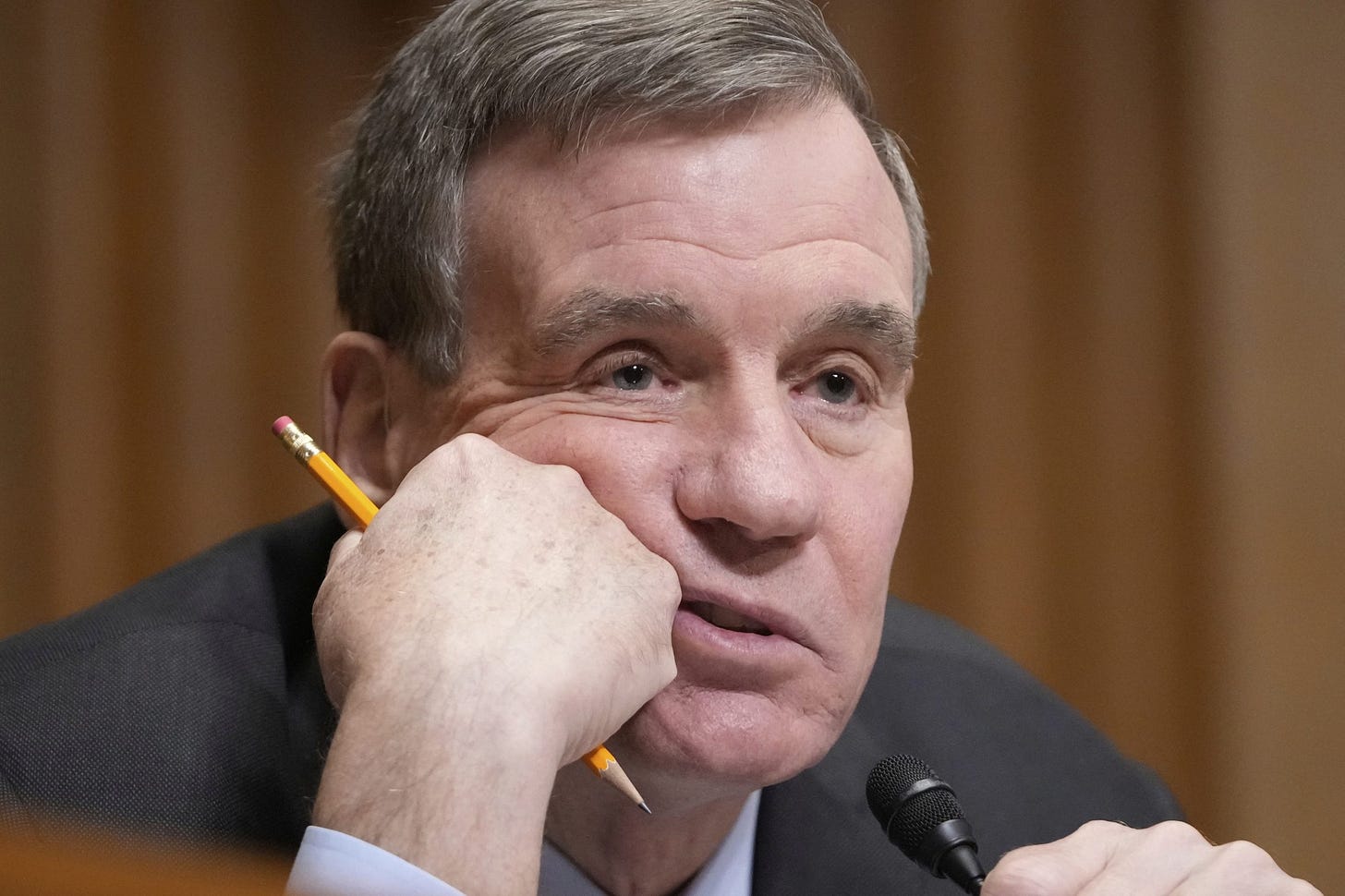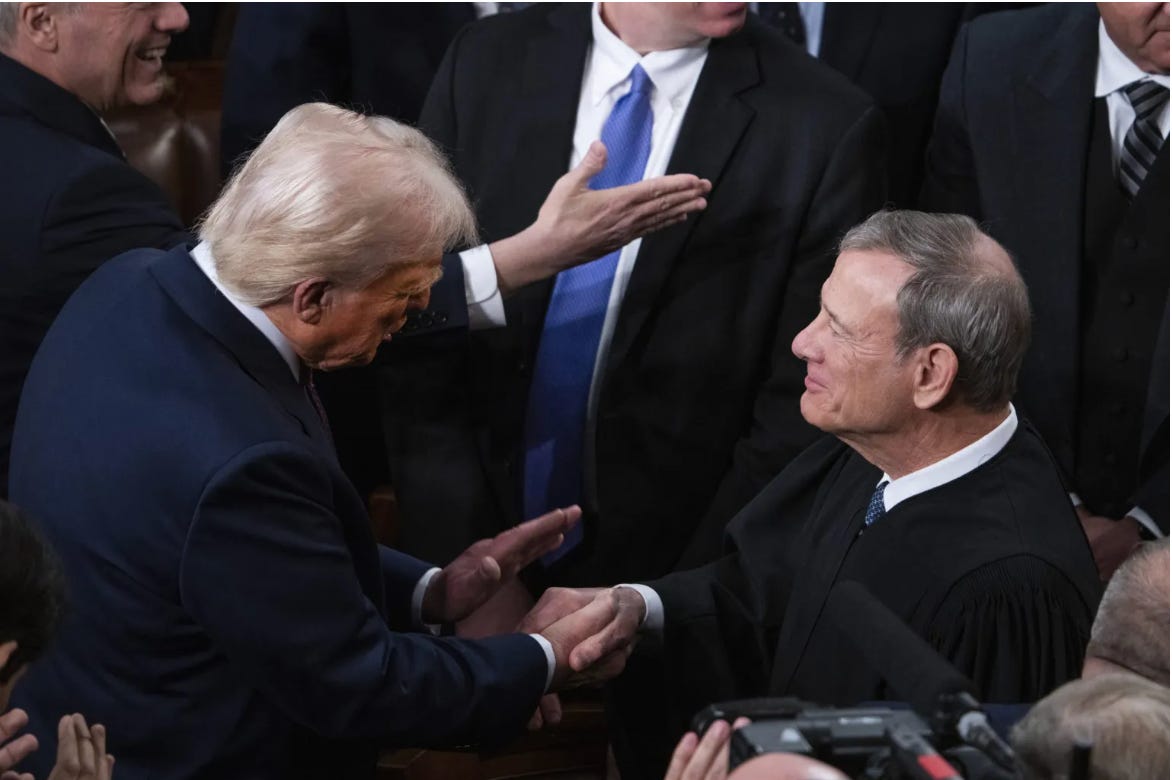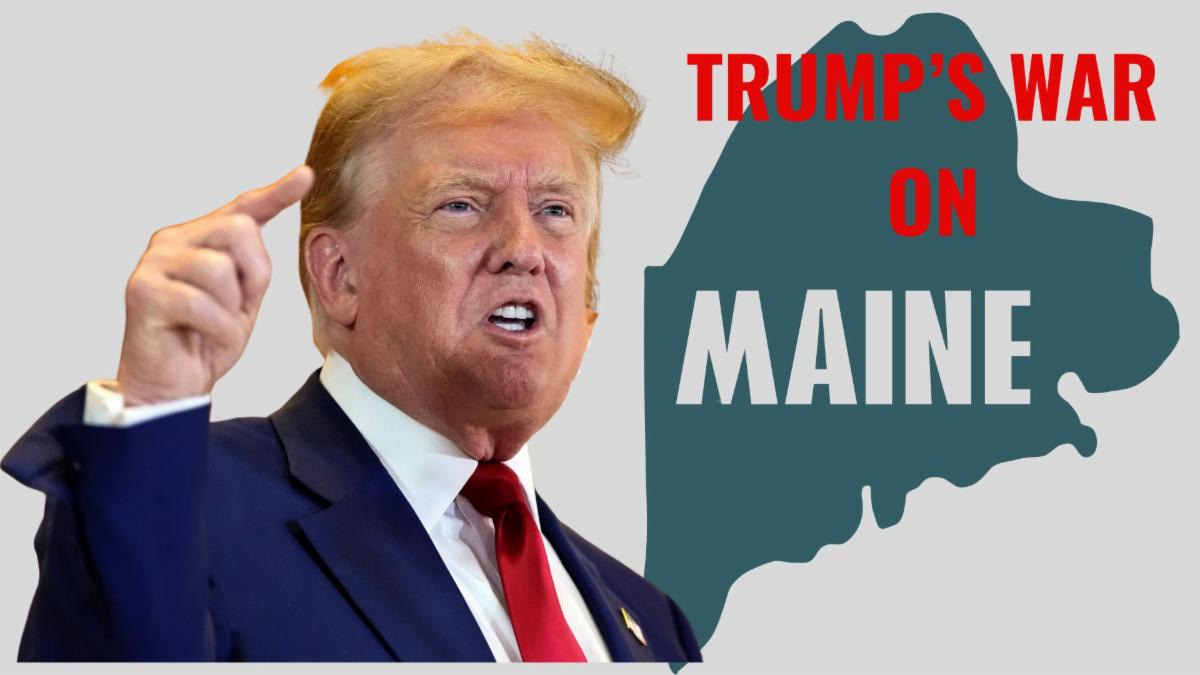Why Are Some Democrats Making Cryptocurrency Too Big to Fail?
Supporting the GENIUS Act, a crypto industry-backed bill that ostensibly regulates "stablecoins," is a political and economic mistake. Plus, a new book charts the Supreme Court's rightward turn.

Why Are Some Democrats Making Cryptocurrency Too Big to Fail?
Supporting the GENIUS Act, a crypto industry-backed bill that ostensibly regulates "stablecoins," is a political and economic mistake.
by David Atkins
Senate Democrats must decide whether to provide the votes to pass a pro-cryptocurrency bill. The measure, the first to regulate the digital currency industry, had been stalled over objections that it would make cryptocurrency too big to fail, enable foreign meddling in American elections, and, in essence, legalize Donald Trump’s cryptocurrency rug-pulling and get-rich schemes. But after negotiators modified it, the bill cleared a crucial Senate hurdle late Monday night as all Republicans but two joined 16 Democrats to overcome cloture. The Democratic supporters included the bill’s co-sponsor Kirsten Gillibrand of New York, Cory Booker of New Jersey, and Mark Warner of Virginia. Senate Democratic leadership, including Majority Leader Chuck Schumer, did not back the GENIUS bill. Elizabeth Warren took to the Senate floor to denounce the measure: “If this bill passes, Main Street investors will be at greater risk of getting robbed and scammed.” On Tuesday, the Senate continued debate. The measure could pass at any time.
Cryptocurrency is complicated, and regulating it is even more so. Digital currency began as electronic money that would be anti-inflationary, free from central bank control, tied directly to individuals, and have a permanent transaction record. However, crypto’s utility proved more limited: it is less efficient in almost every case (outside of a limited benefit for the marginalized enduring oppressive regimes) than an actual government-issued currency. As a tool, it is used by international crime syndicates for money laundering. What makes it compelling to so many is its asset value: basically, people buy cryptocurrency not to use it but to assume it will increase in value. The investor wins either by selling their cryptocurrency to another bag holder in exchange for real money before it collapses, or by cryptocurrency literally displacing national currencies.
In a search for credibility, so-called “stablecoins” were invented. They peg cryptocurrencies to a commodity or currency (typically the dollar). The Senate bill is, in theory, regulating these “stablecoins” to limit money laundering and organized crime, which is why the GENIUS Act stands for the Guiding and Establishing National Innovation for U.S. Stablecoins Act of 2025. The crypto industry has spent hundreds of millions lobbying for the bill to bolster confidence in the cryptomarket and encourage more institutions to invest in cryptocurrencies.
The problem, however, is that the regulatory protections are essentially worthless and riddled with loopholes, as Ryan Cooper explains. The Trump clan would still be free to make billions off crypto and market manipulation schemes; the Consumer Financial Protection Bureau (CFPB), recently neutered by the administration, lacks the tools to enforce regulatory protections; and foreign countries could easily bypass the regulations. Worst of all, investment in cryptocurrencies would soar, making the industry too big to fail. In the event of a crypto crash or the failure of giant stablecoin holders, a taxpayer bailout of crypto asset holders might be inevitable.
So why would any Senate Democrats be open to this, let alone a sizeable contingent? One answer is that the crypto industry has a lot of money to spend on lobbying and campaign donations. Then there’s the fight among Democrats over how to appeal to constituencies where the party has lost ground, especially Silicon Valley types and Trump-leaning young men enthralled by crypto.
Brian Beutler’s recent piece is essential reading here. Pro-crypto Democrats argue that a regulated market is better than an unregulated one and that this legislation is necessary to woo hostile but persuadable constituencies, for whom crypto is their livelihood, and to convince them that the Democratic Party is not their enemy. But the anti-crypto side notes that the juice here is not worth the squeeze.
The crypto bubble isn’t just an investment fad. It’s a symptom of rot in an economy that no longer works for millions. Democrats need not cryptopander to persuade these voters; they must communicate clearly about the forces that drove them to digital currency in the first place. Economic despair, wealth concentration, predatory debt, and stagnant wages are problems crypto won’t fix. Progressive policies can address these systemic issues and sway young crypto investors not entirely in the MAGA bubble.
Democrats should also avoid the temptation to chase the approval of figures like Marc Andreessen, whose flirtation with authoritarianism is a bug, not a feature, of the new Silicon Valley right. The greater opportunity lies in rallying the broader, left-leaning tech workforce, whose values clash with venture capital’s embrace of Peter Thiel and the Dark Enlightenment. By highlighting Trump’s relentless self-dealing and the predatory corruption as intrinsic to crypto, Democrats can peel off tech voters along with democratic values and common-sense economics, not a Ponzi scheme.
Even though some believe passage of a crypto industry-approved bill can yield political gain, it’s not worth the risk of disaster. The crypto gamble is too dangerous, especially when the president openly wages an economic war on the dollar to make exports cheaper. Many crypto evangelists even dream of destroying the Fed and the dollar. Stablecoins don’t mitigate this threat: they magnify it, inflating the crypto bubble until it inevitably bursts, leaving financial devastation.
Are temporary political gains worth systemic instability? Is enabling Trump to loot the system and corrupt American foreign policy? If the Democratic Party should fear anything, it shouldn’t be a few billionaires spending against it. It should fear losing an identity worth fighting for or being complicit in the financial corruption that voters expect them to confront.
Stopping crypto’s metastasis isn't just sound economics. It’s political survival.
David Atkins is a Washington Monthly, contributing writer, activist, and research professional living in Santa Barbara as well as an elected DNC Member from California. He is president of The Pollux Group, a qualitative research firm.
Plus, The Supreme Court’s Immunity-to-Impunity Pipeline
Grievance dressed as law, history warped into license, today’s Court is not checking Trump’s authoritarianism—it’s codifying it.

by George Thomas
As President Donald Trump sweeps the law aside, indiscriminately firing government employees, closing agencies and departments, pressuring law firms and universities, and seizing people residing lawfully in the country without due process, the nation’s eyes have turned to John Roberts. Continue reading online
NEW Episode of the Washington Monthly Podcast!
Ep. 22: Trump's War on Maine
After Donald Trump threatened to cut off funding to the state of Maine over the issue of transgender athletes, Governor Janet Mills told the president, "We'll see you in court." Since then, Maine has waged an effective resistance against Trump's attempts at federal coercion. Political science professors Luisa Deprez and Amy Fried discuss the contours of this defiance and its implications for key upcoming races, including the re-election campaign of Sen. Susan Collins. Washington Monthly contributing editor Anne Kim and Legal Affairs Editor Garrett Epps co-host.
You can subscribe on iTunes, Spotify, and YouTube.
Find the Washington Monthly on Social
We're on BlueSky @washingtonmonthly.com
We're on Twitter @monthly
We're on YouTube @washingtonmonthly9554
We're on Threads @WAMonthly
We're on Instagram @WAMonthly
We're on Facebook @WashingtonMonthly
Donate to the Washington Monthly





